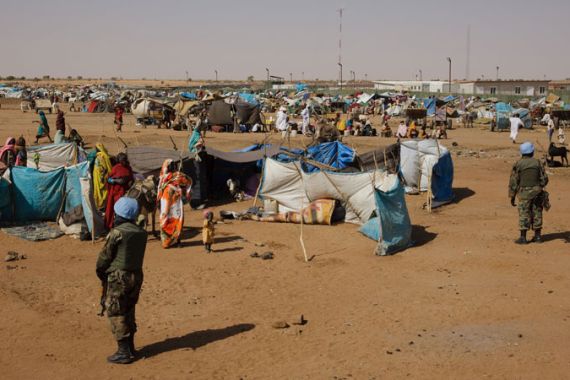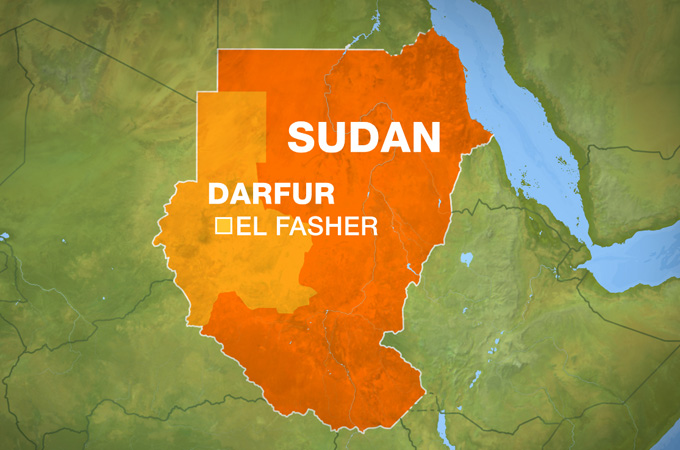Sudan to organise Darfur referendum
Presidential aide says vote is part of the Abuja agreement signed with rebels but failed to end eight-year conflict.

 |
Sudan will hold a referendum on whether to unify the three states of its Darfur territory into one region, a presidential aide has said.
Ghazi Salaheddin told a news conference in Qatar’s capital, Doha, on Wednesday that the vote was part of the Abuja agreement 2006, which was signed by the largest opposition group in Darfur and the Sudanese government but failed to end the conflict.
“We’ll start arrangements for this referendum. It’s a referendum on the administrative status [of Darfur] according to the Abuja agreement and this means we’ll start procedures that deal with this requirement in a democratic way for those residing in Darfur to decide on the issue,” Salaheddin said.
“We expect it will take a few weeks because we need a law on how to hold this referendum. This is stipulated in the Abuja agreement that we adhere to and this is not new.”
Darfur has been in a grip of an eight-year conflict that started after the Sudan Liberation Army (SLA) and the Justice and Equality Movement (JEM) attacked government troops, accusing them of marginalisation and failure to protect villagers from attacks by nomadic groups.
The region, where the UN says 200,000 civilians have been killed, is currently divided into three states with their own governors and administrations – North, South and West Darfur.
Three-way split resented
Omar al-Bashir, the Sudanese president, has been indicted by the Hague-based International Criminal Court (ICC) over war crimes and crimes against humanity in Darfur but he denies any involvement and says only 10,000 people have died in the conflict.
Sudan’s government has long resisted the idea of unifying the territory, for fear of giving Darfuris too large a power base and possibly encouraging separatism, say Sudan analysts.
Many from Darfur’s large Fur tribe and other groups resent the three-way split, saying it sliced up their territory, turned them into minority players in each state and allowed Khartoum to divide and rule them.
Sudan has said it has been stepping up efforts to resolve the Darfur crisis and will present the vote as a key concession. No one was immediately available to comment from Darfur’s rebel groups.
Salaheddin laid out the government’s Darfur strategy including, he said, negotiations, consultations with Darfuris and development.
The United states has promised Khartoum incentives – including help with cancelling its near $40bn debt and easing of sanctions – if it settles the conflict and allows the peaceful secession of the south.
In January, south Sudan, roughly the same size as a unified Darfur, held a referendum for secession and the region is to become an independent state on July 9. The vote followed an agreement that ended a decades-long civil war with the north.
Organising a Darfur referendum would prove a huge logistical task as fighting has turned large parts of the territory into no-go areas, plagued by bandits, kidnappers and warring tribes.
On Monday around 30 unknown armed men attacked Um Dersay refugee camp in North Darfur state, killing a 16-year-old girl and burning houses, Darfur’s UNAMID peacekeepers said.